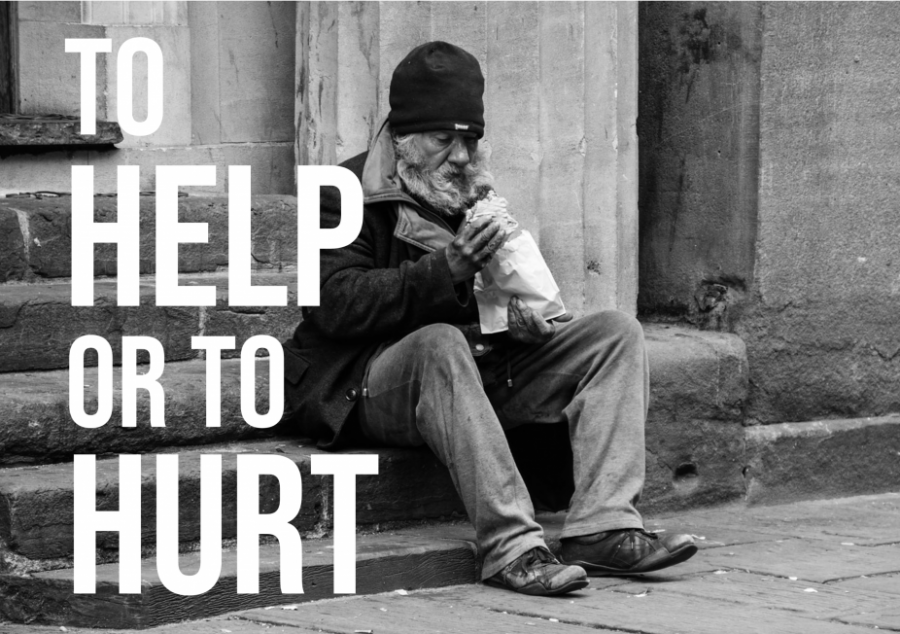To help or to hurt
In a world where giving back to the community is a standard ordeal, developing countries and desperate families bare the risk of the true impacts of large donations, which allows many to be forever intertwined in our systematical cycle of nonprofit organizations.
May 18, 2021
According to a philanthropic study, 90% of adult Americans are involved personally or financially in the charity industry. Researchers today chalk it up to the “compassion boom,” or in other words, our increasing tendency as a society to try and help others.
But when the statistics conflict with the main values of certain charities, the question naturally has to be asked; are these large donations truly helping, or do they end up hurting the ones they intend to help?
There are several opinions circling the topic of donating; on one side we have nonprofits and businesses being portrayed as a greedy network, who work towards the increasing zeros of their company’s worth, and on the other side we have them depicted as helpful saints that raise profitable funds for a noble cause.
So which is it?
At first glance, the nonprofits and big businesses are depicted as saviors who donate an enormous amount each year to these developing countries. TOMS shoe company is commonly in the spotlight for their large donations and their ability to create sturdy shoes.
TOMS’s core values consist of “a heart that is caring, kind, honest and consistent.” These principles that they have guided their company with have grown them into the global enterprise they are today. The donations from TOMS and other large businesses are given the power to keep these countries needing more.
Even though TOMS has donated over 95 million shoes to children, the shoes had no overall impact on the children themselves. The only benefit to come out of the shoes is the children’s schooling attendance barely improving by 0.16%, and all that information was found on the TOMS website under the impact section. TOMS now realizes that they need to put their efforts elsewhere so that will create real change.
The effect of their donations may be creating more problems for financially unstable families. Allowing for struggles such as food dependency and decreased farmer crop revenue. With no way to support themselves on just donations alone, these people are forced to rely on others for help, continuing the vicious cycle.
Companies now are struggling between betterment and development, the difference between what needs to be done and what is just done. Right now these organizations and charities are fixated on achieving as many things as possible, instead of focusing their attention on what really needs to be changed, and how that change will affect the community for the better.
When companies like TOMS provide items, or in this case shoes, without doing any background research into what each specific community needs, it further promotes the struggle between betterment and development.
“We have previously suggested that philanthropy combines genuine pity with the display of power and that the latter element explains why the powerful are more inclined to be generous than to grant social justice,” said Reinhold Niebuhr, Moral Man and Immoral Society, 1932.
Charitable giving often distracts society from finding a better solution. The effort put into a certain charity might be better utilized for pressuring governments to bring about the necessary change. And governments might be more likely to focus on dealing with poverty if they were not dealt with by the donations of millions of charities.
While there are many organizations striving to make a difference, it causes a strong ripple effect, which ultimately leads to our enormous income gaps. Combating an issue such as poverty will require a slow, methodical process; one that cannot be fixed by sporadic donations from large corporations.









